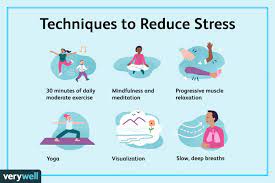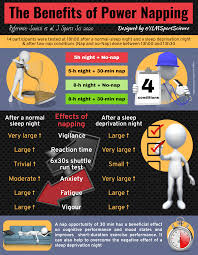The Power of Relaxation Exercises: Techniques to Unwind and De-Stress
In today’s fast-paced world, stress has become a common companion for many people. From work pressures to personal responsibilities, the demands of daily life can take a toll on our mental and physical well-being. That’s where relaxation exercises come in – offering a simple yet effective way to calm the mind, relax the body, and restore balance.
The Benefits of Relaxation Exercises
Relaxation exercises are not just about taking a break; they have scientifically proven benefits for both your mind and body. By engaging in regular relaxation techniques, you can:
- Reduce stress levels
- Lower blood pressure
- Improve sleep quality
- Boost mood and overall well-being
- Enhance focus and concentration
- Alleviate muscle tension and pain
Popular Relaxation Techniques
There are various relaxation exercises that you can incorporate into your daily routine to promote relaxation and reduce stress. Some popular techniques include:
- Deep Breathing: Take slow, deep breaths in through your nose, hold for a few seconds, and exhale slowly through your mouth. Focus on the rhythm of your breath to calm your mind.
- Progressive Muscle Relaxation: Tense each muscle group in your body for a few seconds, then release the tension while focusing on the sensation of relaxation spreading through your body.
- Mindfulness Meditation: Sit quietly and focus on the present moment without judgment. Notice your thoughts and feelings as they arise, allowing them to pass without getting caught up in them.
- Yoga: Engage in gentle yoga poses that promote flexibility, strength, and relaxation. Focus on connecting breath with movement to quiet the mind.
- Guided Imagery: Visualize yourself in a peaceful setting or engaging in activities that bring you joy. Allow your imagination to create a sense of calmness and serenity.
Incorporating Relaxation into Your Routine
To experience the full benefits of relaxation exercises, it’s essential to make them a regular part of your routine. Find moments throughout your day to pause, breathe deeply, and engage in techniques that help you unwind. Whether it’s taking a short break at work or dedicating time before bed for relaxation practices, prioritize self-care for optimal well-being.
No matter how busy life gets, remember that taking care of yourself is essential for maintaining balance and resilience. By incorporating relaxation exercises into your daily life, you can cultivate inner peace, reduce stress levels, and enhance your overall quality of life.
Unwinding with Ease: Your Guide to Relaxation Exercises and Their Benefits for Stress Relief and Improved Sleep
- What are relaxation exercises?
- How do relaxation exercises help reduce stress?
- What are some popular relaxation techniques?
- When is the best time to practice relaxation exercises?
- Can relaxation exercises improve sleep quality?
- Are there specific relaxation exercises for different situations or environments?
What are relaxation exercises?
Relaxation exercises encompass a variety of techniques designed to promote calmness, reduce stress, and enhance overall well-being. These exercises typically involve methods such as deep breathing, progressive muscle relaxation, meditation, yoga, and guided imagery. By engaging in relaxation exercises, individuals can effectively relax both their mind and body, leading to benefits such as decreased anxiety levels, improved sleep quality, reduced muscle tension, and increased mental clarity. Incorporating these practices into daily routines can help individuals manage stress more effectively and cultivate a sense of inner peace amidst life’s demands.
How do relaxation exercises help reduce stress?
Relaxation exercises play a crucial role in reducing stress by activating the body’s natural relaxation response. When we engage in techniques such as deep breathing, progressive muscle relaxation, or mindfulness meditation, our nervous system shifts from the “fight or flight” response to the “rest and digest” mode. This shift triggers a cascade of physiological changes, including lowered heart rate, decreased blood pressure, and reduced muscle tension. By calming the mind and body through relaxation exercises, we can counteract the effects of chronic stress, promote emotional well-being, and cultivate a sense of inner peace and resilience.
What are some popular relaxation techniques?
When it comes to popular relaxation techniques, there are several effective methods that can help calm the mind and relax the body. Deep breathing exercises, such as diaphragmatic breathing or box breathing, are commonly used to reduce stress and promote relaxation. Progressive muscle relaxation involves tensing and then releasing different muscle groups to alleviate tension. Mindfulness meditation encourages being present in the moment and observing thoughts without judgment. Yoga combines gentle movements with breath awareness to enhance relaxation and flexibility. Guided imagery allows individuals to visualize peaceful scenes or experiences for a calming effect on the mind. By incorporating these popular relaxation techniques into your routine, you can effectively manage stress and improve overall well-being.
When is the best time to practice relaxation exercises?
The best time to practice relaxation exercises is whenever you can carve out a few moments of peace and quiet in your day. Ideally, incorporating relaxation techniques into your daily routine can help you start or end your day on a positive note. Many people find that practicing relaxation exercises in the morning helps set a calm and focused tone for the day ahead, while others prefer to unwind with these techniques in the evening to de-stress and prepare for a restful night’s sleep. Ultimately, the best time to practice relaxation exercises is whenever it fits seamlessly into your schedule and allows you to reap the benefits of reduced stress and enhanced well-being.
Can relaxation exercises improve sleep quality?
Many individuals wonder about the potential impact of relaxation exercises on sleep quality. Research suggests that engaging in relaxation techniques can indeed improve sleep quality. By calming the mind, reducing stress levels, and promoting a sense of relaxation, these exercises create an optimal environment for restful sleep. Techniques such as deep breathing, progressive muscle relaxation, and mindfulness meditation have been shown to help individuals fall asleep faster, experience fewer disruptions during the night, and wake up feeling more refreshed and rejuvenated. Incorporating relaxation exercises into your bedtime routine may contribute to a more peaceful and restorative night’s sleep.
Are there specific relaxation exercises for different situations or environments?
When it comes to relaxation exercises, there are indeed specific techniques tailored for different situations and environments. Whether you’re at work feeling overwhelmed, at home seeking tranquility, or in a public setting needing a quick stress-relief method, there are relaxation exercises suitable for each scenario. From deep breathing exercises that can be discreetly practiced anywhere to mindfulness techniques that promote focus and calmness during hectic moments, exploring a variety of relaxation exercises allows you to find the ones that best suit your needs in various situations and environments.



